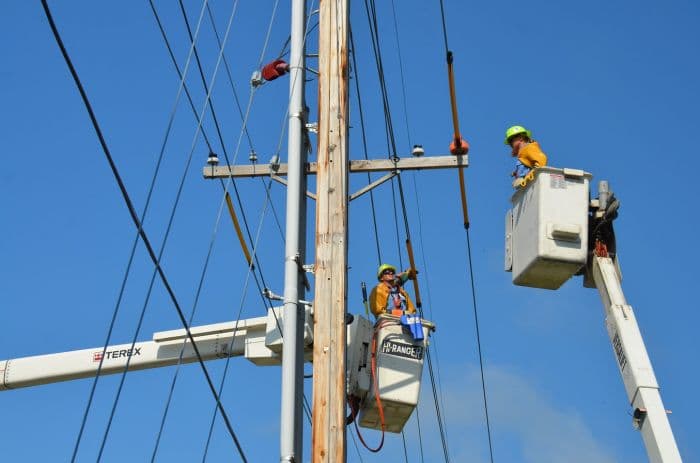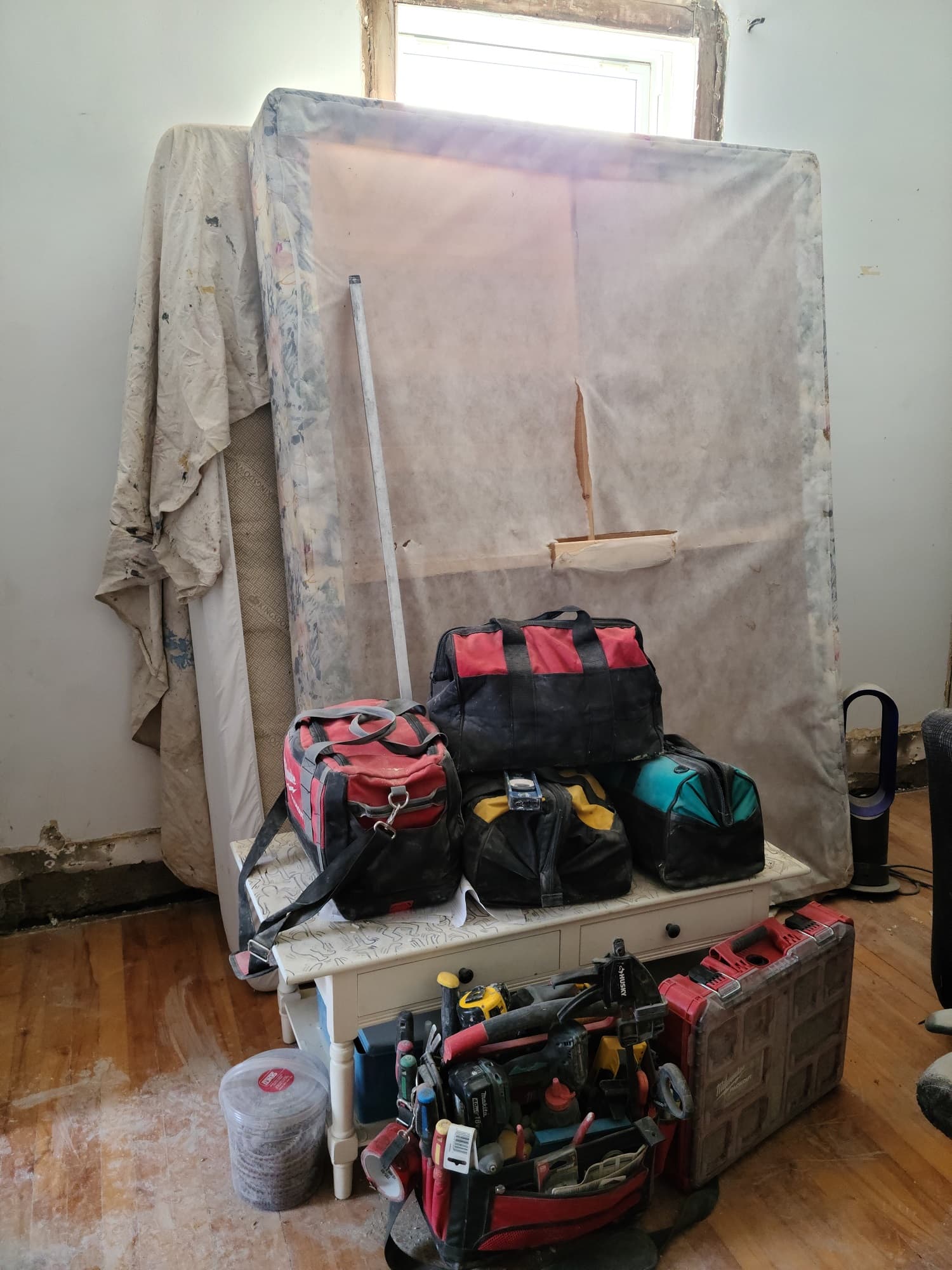
Are you thinking about becoming an electrician but hesitant about moving forward with this adventure for one reason or another? Of course, learning a trade involves a lot more than simply sitting in a classroom, and thus, we’re here to offer a glimpse of what this exciting job will hold for you. This includes information about the prospects it offers.
All about becoming an electrician
What does an electrician do?
As the name implies, the electrician installs, assembles, and tests a set of electrical devices such as electrical wiring, electrical panels, and light fixtures. Working in both the residential and commercial sectors, the electrician will work on their own or for a company.
The skills required to be an electrician

Apart from an interest in the field of electricity, certain skills and interests are essential to become an electrician. First, it is essential to have good mathematical skills, given the need to perform calculations and apply the results in a real context.
Electronics, as well as electrical engineering, must certainly be sources of interest for any aspiring electrician. In a similar vein, the ability to read plans and understand their specifications are also essential skills to move forward with this profession.
As this work obviously involves risks, one must have the ability to be extremely meticulous as well as to possess flawless concentration when performing required tasks. In the same vein, having good dexterity is of paramount importance. Even further, we could say the work of an electrician is often carried out in rather restricted places or at heights. Therefore, it’s important to be sensitive to these working conditions.
The daily life of an electrician can be particularly demanding, which is why it's necessary to be in excellent physical condition. It should also be emphasized that being an electrician involves dealing with and solving problematic situations. Therefore, it’s necessary to demonstrate a strong sense of control and a good level of responsiveness, as these are essential qualities.
As you can already imagine, the job of an electrician is often done alone. You must, therefore, appreciate the individual work, with the additional abilities to be able to be autonomous and take initiative.
Training and certification to be an electrician

Let’s start this section by reminding the reader that the certification requirements for this trade vary from one province or territory to another. Nevertheless, holding the correct certification is essential for anyone who wishes to practice this profession.
Essentially, a high school degree or its equivalent is required to access training in this field. In certain provinces, such as Ontario, two to three years of classroom training is required. In contrast, the situation in Quebec is quite different. Indeed, you’ll be required to have your DEP (DVS) as well as to complete 4 periods of 2000 hours of apprenticeship to be eligible for a provincial qualification exam. Note that when successful, you’ll obtain the title of companion. The entire apprenticeship lasts between 4 and 5 years, including technical training, on-the-job training as well as a mandatory exam.
As is the case with many construction trades, it’s possible to take an interprovincial exam in order to obtain the Red Seal and be able to work as an electrician across Canada.
In Quebec, in order to have access to construction sites and to be able to meet the requirements for on-the-job training, it will be necessary to provide proof to the CCQ that you’ve successfully completed your course (DEP) and to work within the school. A company for at least 150 hours out of a total of 12 weeks. In addition, proof of this employment must be provided to the CCQ.
Apart from the DEP in electricity, strictly speaking, know that other programs in Quebec give access to this title such as the program in installation and maintenance of security systems.
Being an Electrician: Job Prospects and Salary
Although the wage scale of this trade is highly dependent on collective agreements, the salary ranges from $23,000 to $70,000. The base salary corresponds to that of an apprentice who starts this trade in contrast to the other figure which indicates the salary earned by a journeyman electrician working an annual minimum of 500 hours. It should be noted that the salary increases with the 2000-hour apprenticeship periods mentioned above, which ultimately leads to the title of a journeyman.
Although a small drop in hiring is expected in the residential sector as well as in the institutional sector, it should be mentioned that job prospects in this field remain promising. Moreover, graduates are doing well, as noted by the approximate placement rate of 92%.
Interestingly, for women attracted to a career path as an electrician, the construction industry offers a good place as this job is one of those in which the presence of women is most marked.
Working as an electrician in Quebec
As we have already mentioned in many of our articles, it is essential for anyone who wishes to work as an electrician to obtain a valid license from the RBQ. Specifically, this license is required: Electricity, plumbing, heating, oil or natural gas burners (sub-category 16).
Rather than going directly to the RBQ, it is important to know that the CMEQ (Corporation des maîtres électriciens du Québec) should be called upon. This organization is responsible for qualifying its members for a sub-category 16 licence.
Looking for something else?
Related articles
The latest industry news, interviews, technologies, and resources.

Editorial Team
•05 Oct 2024
The HVAC (Heating, Ventilation, and Air Conditioning) industry is a vital sector in Ontario, catering to residential, commercial, and industrial needs. HVAC technicians play a crucial role in ensuring comfort and safety by maintaining, installing, and repairing heating and cooling systems. This article serves as a comprehensive guide to becoming an HVAC technician in Ontario, outlining the educational pathways, certification requirements, and career opportunities.

Editorial Team
•18 Sep 2024
In the sphere of jobs one can have in the construction field, being a well contractor might sound strange and a bit old fashioned in our modern times. Yet, the work of a well technician is vital in the field of construction. We all need access to clean and safe water, so being a water well driller can be a very rewarding profession
Editorial Team
•09 Sep 2024
Are you about to renovate your kitchen? It’s no surprise that you’re probably asking yourself questions regarding the standard dimensions of certain elements, like cabinets. Without further ado, here’s the answer to your query!

Editorial Team
•12 Dec 2024
A foundation is exactly what it sounds like: it's the base upon which a building’s structure is built. It provides stability, ensuring it stands the test of time. In Quebec, ancestral houses aren’t a rarity, and they’re reflective of the province’s architectural heritage. However, building materials and methods aren’t what they used to be. Nowadays, concrete formwork foundations are considerably more common. Yet, a hundred or so years ago, rubble foundations (or stone foundations) were especially widespread.

Amanda Harvey
•08 Nov 2023
Is your home ready for a much-needed renovation? Do you feel like you're prepared to take on the job? Many homeowners feel as though everything has already been considered and arranged, but there are often aspects of home renovations that are overlooked and can lead to serious problems down the line.